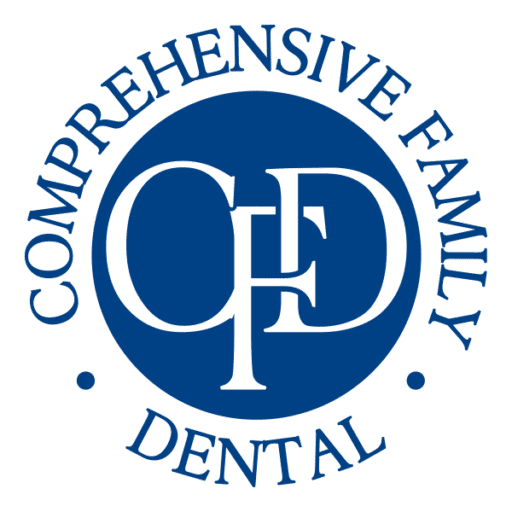TMJ (temporomandibular joint) disorder can be a debilitating condition that affects the jaw joint, causing pain and discomfort. If you or a loved one has experienced TMJ pain, you may be wondering how long these episodes typically last. In this comprehensive guide, we will explore the duration of TMJ flare-ups, the symptoms associated with them, possible causes, and the available treatment options.
Understanding Temporomandibular Joint Dysfunction
The temporomandibular joint (TMJ), essential to facial muscles for speaking, chewing, and yawning, can become inflamed, leading to TMJ issues. This condition can significantly affect daily life, causing pain, difficulty moving the jaw, and even headaches.
TMJ disorders are notorious for their episodic nature, often presenting as flare-ups that exacerbate existing symptoms or introduce new ones. The frequency, duration, and intensity of these flare-ups can significantly vary among individuals, influenced by a myriad of factors.
TMJ problems often occur in flare-ups, with symptoms varying in frequency and severity based on factors like stress, teeth grinding, or jaw injury. Treatment aims to alleviate symptoms through different treatment options including laser treatments, bite splint or orthotics therapy, self-care, medication, or physical therapy, focusing on both immediate pain relief, and addressing the root causes to improve overall well-being.
Common Symptoms of TMJ
TMJ can present a variety of symptoms that can affect the jaw, face, and surrounding areas. Some common signs of TMJ include:
- Chronic jaw pain and discomfort
- Clicking or locking of the jaw muscles
- Swelling and warmth in the face
- Difficulty opening the mouth or chewing
- Limited jaw mobility
- Muscle spasms
- Toothaches
- Headaches
- Neck pain
- Ear pain
It’s important to note that other symptoms of TMJ can impact daily activities such as speaking, eating, yawning, and sleeping. The severity and frequency of these symptoms can vary from person to person.
How Long Do TMJ Flare Ups Last?
The duration of TMJ dysfunction can range from a few hours to several days or longer. However, untreated cases of TMJ disorder can become chronic and lead to prolonged and debilitating symptoms. It’s crucial to seek appropriate diagnosis and treatment to minimize the duration and intensity of TMJ flare-ups.
Each individual case of TMJ pain is unique, and the duration of flare-ups can be influenced by several factors, including the underlying cause of chronic pain and the effectiveness of the chosen treatment approach. With proper diagnosis and treatment, individuals can find relief from their symptoms and manage their TMJ disorder effectively.

Causes of TMJ Flare-Ups
TMJ flare-ups can be caused by various factors, both physical and psychological. Some common causes include:
- Injury or trauma to the jaw joint
- Erosion in the jaw disc or joint
- Deterioration from arthritis
- Stress and anxiety
- Head forward posture
- History of permanent teeth extractions for orthodontics
- Hormonal changes
- Sleep disordered breathing issues
It’s essential to identify and address the underlying cause of TMJ disorder to manage and prevent flare-ups effectively.
Treatment Options for TMJ Syndromes
Treating TMJ typically involves a combination of approaches tailored to the individual’s specific needs. The treatment plan may include:
Orthotic Treatment
In the initial phase of treatment, a TMJ appliance, such as a custom orthotic or bite splint, can be worn to align the jaw properly and alleviate symptoms. This orthotic treatment can provide temporary relief and promote healing.
Laser Treatment
Laser therapy can reduce inflammation in the TMJs and reduce pain by photo biomodulation. Also known as low-level laser light therapy (LLLT), as it is based on the use of lasers (or LED light) that produce low intensity light, PBM is non-invasive and has been shown to decrease inflammation and provide pain relief.
Pain Management
Over-the-counter pain relievers and anti-inflammatory medications can help manage pain and discomfort during TMJ flare-ups.
Lifestyle Modifications
Making certain lifestyle changes can also contribute to managing TMJ. These may include stress management and reduction techniques, maintaining good head and tongue posture, and addressing breathing issues.
Physical Therapy
Physical therapy exercises and techniques, such as jaw stretching and strengthening exercises, can help improve jaw mobility and reduce muscle tension in jaw joints.
Dental Procedures
In some cases, dental procedures such as orthodontics, dental crowns, bridges, or dental implants may be recommended to restore proper alignment and balance to the jaw.

Seeking Professional Assistance for TMJ Disorder
TMJ syndrome and painful symptoms can significantly impact one’s quality of life if left untreated. It’s crucial to seek professional assistance from a dentist experienced in treating TMJ conditions. They can accurately diagnose the underlying cause of the disorder and develop a personalized treatment plan to manage symptoms effectively.
Dr. Tim Rainey, DDS, is a reputable dentist specializing in comprehensive family dental care. With his expertise in TMJ dentistry, he can provide expert diagnosis and treatment for TMJ disorders. Dr. Rainey and his team at Comprehensive Family Dental are dedicated to helping patients find relief from their TMJ symptoms and improve their overall oral health.
Conclusion
Temporomandibular Joint Disorder can vary in duration and intensity, ranging from a few hours to several days. However, with appropriate diagnosis and treatment, individuals can effectively manage their TMJ syndrome and minimize flare-ups. Seeking professional assistance from a qualified dentist or is crucial for accurate diagnosis and tailored treatment plans.
If you’re experiencing TMJ symptoms or frequent flare ups, it’s essential to consult with a trusted dentist like Dr. Tim Rainey. With the right treatment approach, you can find relief from TMJ pain and discomfort and improve your overall oral health.
Contact Comprehensive Family Dental today to schedule a consultation and take the first step toward managing your TMJ syndrome effectively.


